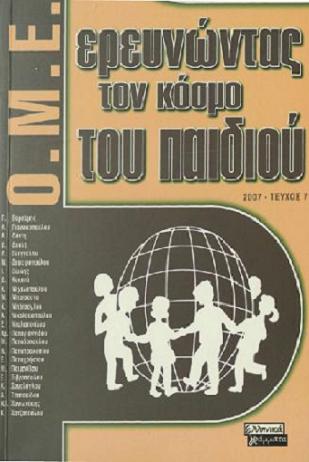Primary and Pre-School Education students' opinions about mathematics and their teaching at kindergarten

Abstract
The aim of the present study is to investigate how students from Primary and Pre-School Education Departments view the teaching of mathematics. For this purpose a study was carried out in which 173 students from the two Education Departments in Democritus University of Thrace were asked to fill in a questionnaire with groups of questions about: a) their attitude towards mathematics, b) their opinions about teaching mathematics at school context, and c) their opinions about teaching mathematics at kindergarten. It was found that, although the prospective teachers have mixed feelings about mathematics, they all have clearly positive attitudes towards mathematics teaching at the kindergarten level. They believe that mathematics teaching at school offers them the opportunity to develop young children's positive relationship with mathematics. Finally, mathematics teaching at kindergarten was considered to differ from mathematics teaching in the primary school. The educational implications of the results are discussed.
Article Details
- How to Cite
-
Δεσλή (Despina Desli) Δ., & Παπαχρήστου (Irini Papaxristou) Ε. (2007). Primary and Pre-School Education students’ opinions about mathematics and their teaching at kindergarten. Investigating the child’s World, 7, 26–40. https://doi.org/10.12681/icw.18221
- Issue
- Vol. 7 (2007)
- Section
- Scientific articles & educational projects

This work is licensed under a Creative Commons Attribution-NonCommercial 4.0 International License.
Authors who publish with this journal agree to the following terms:
· Authors retain copyright and grant the journal right of first publication with the work simultaneously licensed under a Creative Commons Attribution Non-Commercial License that allows others to share the work with an acknowledgement of the work's authorship and initial publication in this journal.
· Authors are able to enter into separate, additional contractual arrangements for the non-exclusive distribution of the journal's published version of the work (e.g. post it to an institutional repository or publish it in a book), with an acknowledgement of its initial publication in this journal.
· Authors are permitted and encouraged to post their work online (preferably in institutional repositories or on their website) prior to and during the submission process, as it can lead to productive exchanges, as well as earlier and greater citation of published work.


